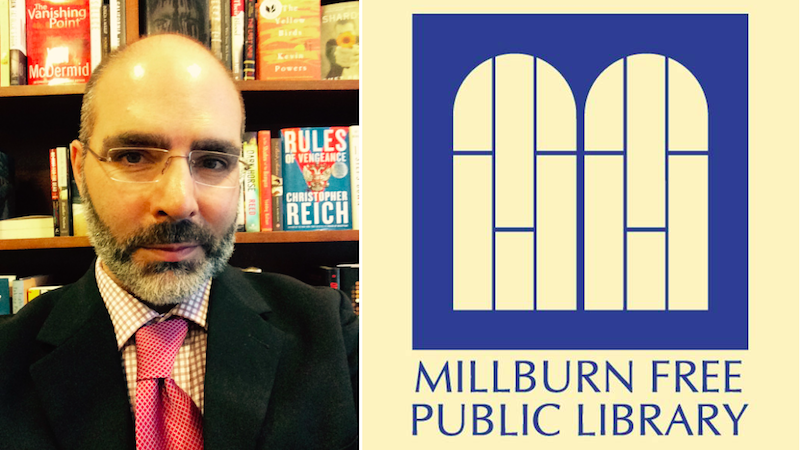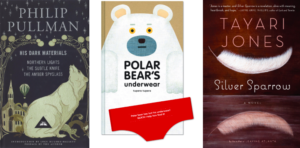
Welcome to Shhh…Secrets of the Librarians, a new series (inspired by our long-running Secrets of the Book Critics) in which bibliothecaries (yes, it’s a real word) from around the country share their inspirations, most-recommended titles, thoughts on the role of the library in contemporary society, favorite fictional librarians, and more. Each week we’ll spotlight a librarian—be they Academic, Public, School, or Special—and bring you into their wonderful world.
This week, we spoke to New Jersey-based author and librarian, Jon Michaud.
*

Book Marks: What made you decide to become a librarian?
Jon Michaud: Desperation and infatuation. At 30, I’d spent the better part of a decade writing and submitting work for publication while making ends meet by clerking in bookstores and spreading cream cheese on bagels. I’d earned a total of $50 from a single published story. It was clear that I needed to change course. Through a friend, I got an entry-level job at the Time Inc. Research Center, applying index terms to magazine articles. (This was the mid-90s, before “metadata” came into common usage.) It was there that I met my wife, Zoraida, who was just finishing library school. She encouraged me to get a Master’s in Library Science, which I did. It was the second-best decision of my life. (The first was marrying her, of course.) Ironically, once I got my library degree, I started placing stories and earning money from my writing.
I love Eugene Lim’s idea of creating dual degrees that would combine an MFA with occupational courses such as library science or nursing. It’s essentially what I did—with a ten-year gap between.
BM: What book do you find yourself recommending the most and why?
JM: My favorite storytime book these days is Polar Bear’s Underwear by Tupera Tupera. No kid can resist its charms. In the children’s room, I most often recommend books by Kate DiCamillo and Jacqueline Woodson. Both are beloved for a reason. For kids who have reached the end of the Rick Riordan-Harry Potter Fantasy Highway, I suggest the work of Daniel José Older and Philip Pullman’s His Dark Materials.
When I work on the adult side, I steer people to Mary Roach’s books; early novels by Tayari Jones, especially Silver Sparrow; and The Last Policeman trilogy by Ben H. Winters. As my colleague Liz said when I asked her this question, many of the recent books one might be inclined to recommend—Celeste Ng’s Little Fires Everywhere, Rebecca Makkai’s The Great Believers, and There There by Tommy Orange—already have such long waiting lists that they are not immediately available.
BM: Tell us something about being a librarian that most people don’t know?
JM: We don’t spend our workdays reading. We almost never shush people. And we are well aware that your taxes pay our salaries. No need to remind us. We also see you watching porn on the public access terminals.
You should bear in mind that the openness of the public library means that its workers are especially vulnerable to verbal assault, unwanted touching, and other inappropriate behavior from patrons. Please be respectful.
BM: What is the weirdest/most memorable question you’ve gotten from a library patron?
When I worked in the library at the U.S. E.P.A., I got an email query from a young man in California. He’d driven to Oregon to visit friends with cases of beer in the trunk of his car. He was under 21. En route, he was stopped by the police, who made him dump out all the beer by the side of the road. He was angry about it and wanted to know if the police had broken any environmental laws by making him pour so much alcohol into the ground. Librarians are not allowed to interpret the law, so I referred him to the Oregon Department of Environmental Quality.
BM: What role does the library play in contemporary society?
JM: The public library where I work is a dozen institutions under a single roof: It’s a venue for storytimes, chess lessons, piano recitals, meditation classes, ESL conversation, art exhibits, video-game clubs, after-school learning, and book discussion groups. It’s a polling place. People run small businesses out of our quiet rooms. The library is the town’s refuge during extreme weather, where locals come to warm up or cool down and to charge their phones during blackouts. (We have access to a generator.) We offer notary services and passes to museums such as the Guggenheim and the Frick. We are the only portal to the Internet for some of our users. (Not long ago I helped a patron apply for a job. A few weeks later, I helped him process his intake paperwork.) You can watch movies, listen to audiobooks, and access research databases here. And, oh yeah, we’ve also got printed books. It’s all free.
It’s easy to forget just how radical an idea the public library is. It is the ultimate third place—a place that is neither work nor home, where people interact with other members of their community. It’s a place where social status is leveled, where there is no barrier to admission, and no one is stigmatized. In our divisive digital age we need such spaces more than ever.
BM: Who is your favorite fictional librarian?
Peggy Cort, from Elizabeth McCracken’s The Giant’s House, is my favorite fictional librarian. “People think librarians are unromantic, unimaginative. This is not true. We are people whose dreams run in particular ways…. The idea of a library full of books, the books full of knowledge, fills me with fear and love and courage and endless wonder.” Yes.
My favorite fictional library is the Gormenghast library, which burns to the ground in an astonishing scene in Mervyn Peake’s Titus Groan.
*
Jon Michaud is the author of the novel When Tito Loved Clara. His writing has appeared in NewYorker.com, The Washington Post, Tin House, and North American Review. As a librarian, he has worked at Time Inc., the U.S. Environmental Protection Agency, The New Yorker, and The Center for Fiction. He is currently a reference librarian at the Millburn Free Public Library in New Jersey and is writing a non-fiction book about Northern Manhattan.
*
· Previous entries in this series ·

